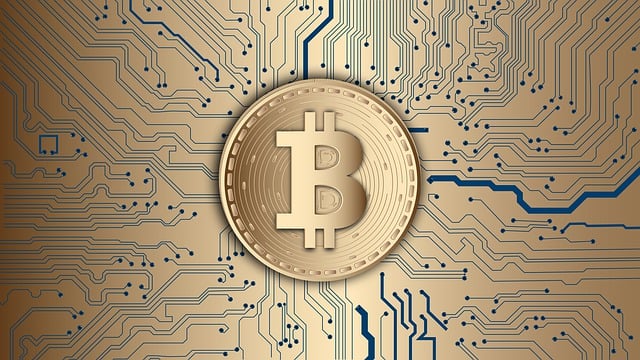In an increasingly digital world, money is no exception to the trend. With the rise of digital currency, the landscape of finance is undergoing a significant transformation. But what exactly is digital currency, and how does it impact our lives? Let’s embark on a journey to unravel the mysteries of digital currency in simple terms.
What is Digital Currency?
Unlike traditional money, such as coins or banknotes, digital currency is decentralized and operates independently of central banks or governments. Instead, it relies on cryptographic techniques to secure transactions and control the creation of new units.
How Does Digital Currency Work?
At the heart of digital currency is a technology called blockchain. A blockchain is a decentralized and distributed ledger that records all transactions across a network of computers Read more about Blockchain. Each transaction is encrypted and linked to the previous one, creating a chain of blocks. This technology ensures transparency, security, and immutability, making it difficult for anyone to alter transaction records fraudulently.
Popular Currencies
Bitcoin: Bitcoin is the first and most well-known, created in 2009 by an anonymous person or group using the pseudonym Satoshi Nakamoto. It operates on a decentralized network and is often referred to as digital gold due to its limited supply and store of value characteristics.
Ethereum: Ethereum is a decentralized platform that enables developers to build and deploy smart contracts and decentralized applications (DApps). Its native currency, Ether (ETH), is used to power transactions on the Ethereum network.
Other digital currencies, such as Litecoin, Ripple, and Cardano, also exist, each with its unique features and use cases.
Benefits
1. Decentralization: Digital currency operates on decentralized networks, eliminating the need for intermediaries like banks and financial institutions. This decentralization gives users more control over their money and reduces the risk of censorship or manipulation.
2. Security: Transactions conducted with digitalize currency are secured through cryptographic techniques, making them resistant to fraud and hacking. Additionally, the transparent nature of blockchain technology enhances accountability and trust among users.
3. Global Accessibility: Digi currency transcends geographical boundaries, allowing for seamless and instant transactions across the globe. This accessibility is particularly beneficial for individuals in underserved or unbanked regions who may lack access to traditional financial services.
Challenges and Considerations
While it offers numerous benefits, it also poses certain challenges and considerations:
1. Volatility: Digital currency markets are highly volatile, with prices fluctuating rapidly over short periods. This volatility can pose risks for investors and users alike, necessitating caution and risk management strategies.
2. Regulatory Uncertainty: The regulatory landscape surrounding digital currency is constantly evolving, with governments grappling to establish clear guidelines and regulations. This uncertainty can impact the adoption and mainstream acceptance of digital currency.
3. Security Risks: While blockchain technology provides robust security, digital currency users must remain vigilant against potential security risks, such as phishing attacks, malware, and hacking incidents.
Understanding Bitcoin and Wallets
Now, let’s delve into two essential components of the digital currency ecosystem: Bitcoin and wallets.
What is Bitcoin?
Bitcoin is a digital version of traditional money, operating on a decentralized network and recorded on the blockchain. Transactions made with Bitcoin are secure, transparent, and resistant to censorship.

How Does Bitcoin Work?
Bitcoin operates on a technology called blockchain, which is like a digital ledger or record book. Whenever someone makes a transaction with Bitcoin, like buying goods or sending money to a friend, that transaction is recorded on the blockchain. These records are permanent and transparent, making it difficult to manipulate or counterfeit Bitcoin.
What Are Wallets?
In the world of digi currency, wallets play a crucial role in managing and storing cryptocurrencies like Bitcoin. Wallets are software programs or apps that allow users to store, send, and receive digital currency securely. There are different types of wallets, including software wallets, hardware wallets, and paper wallets, each offering varying levels of security and convenience.

Types of Wallets
There are different types of Bitcoin wallets:
1. Software Wallets: These are apps or programs that you can download and install on your computer or smartphone. They’re convenient for everyday use and often come with additional features like easy access to exchange services.
2. Hardware Wallets: Hardware wallets are physical devices, similar to a USB drive, designed specifically for storing Bitcoin securely offline. They offer enhanced security because they’re not connected to the internet when not in use, reducing the risk of hacking.
3. Paper Wallets: A paper wallet is a physical document that contains a public address for receiving Bitcoin and a private key for spending or transferring Bitcoin. It’s considered one of the safest ways to store Bitcoin because it’s completely offline and immune to cyber-attacks.
Why Are Wallets Important?
Wallets are crucial for managing your Bitcoin safely. They provide a secure way to store your digital currency and give you control over your funds. With a wallet, you can send and receive Bitcoin anytime, anywhere, without relying on banks or intermediaries.
In an era defined by technological advancement, the evolution of money has taken a digital turn. Digital currency, with its decentralized nature, transparency, and security features, is revolutionizing the financial landscape. As the world continues to embrace the digital age, understanding digital currency is paramount for individuals, businesses, and policymakers alike.
It represents a paradigm shift in our perception and interaction with money. Unlike traditional financial systems, digital currency operates independently of central authorities, offering a compelling alternative that prioritizes decentralization, transparency, and security.
At the forefront of the digital currency revolution is Bitcoin, the pioneer cryptocurrency. With its decentralized network and transparent technology, Bitcoin challenges the status quo of traditional financial systems. Integral to the digital currency ecosystem are wallets, providing users with the tools to securely manage their Bitcoin and navigate the world of cryptocurrency with confidence.
Whether you’re a seasoned investor or new to the world of digital currency, understanding the fundamentals of digital currency empowers you to embrace its transformative potential. By staying informed, adopting best practices, and grasping concepts like Bitcoin and wallets, stakeholders can navigate the exciting and evolving landscape of cryptocurrency with confidence.
As we continue to embrace the digital age, the importance of digital currency becomes increasingly evident. By harnessing the transformative power of digital currency, we can create a more inclusive, efficient, and decentralized financial ecosystem. However, it’s crucial to approach digital currency with caution, educating ourselves about its intricacies and potential risks to ensure a sustainable and thriving financial future.
It represents more than just a technological innovationm, it embodies a fundamental shift in the way we perceive and interact with money. With its decentralized nature, transparency, and security features, digital currency offers a path towards a more equitable and efficient financial future. As we navigate the digital age, understanding and embracing digital currency will be essential for shaping a world where financial empowerment is truly within reach for all.
Faqs
How does it differ from traditional money?
Unlike traditional money, such as coins or banknotes, digital currency is decentralized and operates independently of central banks or governments. It relies on cryptographic techniques to secure transactions and control the creation of new units, offering increased transparency and security compared to traditional money.
What is blockchain technology, and why is it important for digi currency?
Blockchain technology is a decentralized and distributed ledger that records all transactions across a network of computers. Each transaction is encrypted and linked to the previous one, creating a chain of blocks. This technology ensures transparency, security, and immutability, making it difficult for anyone to alter transaction records fraudulently. It is essential for digital currency as it provides the infrastructure for secure and transparent transactions without the need for intermediaries.
How does Bitcoin work, and who created it?
Bitcoin is a digital currency created in 2009 by an anonymous person or group using the pseudonym Satoshi Nakamoto. It operates on a decentralized network and is recorded on the blockchain. Transactions made with Bitcoin are secure, transparent, and resistant to censorship. Bitcoin works by utilizing blockchain technology to validate and record transactions across a network of computers, ensuring the integrity of the system without the need for central authorities.
What are the benefits of using digi currency like Bitcoin?
Some benefits of using digital currency like Bitcoin include decentralization, which eliminates the need for intermediaries like banks, increased security due to cryptographic techniques, and global accessibility, allowing for seamless and instant transactions across the globe. Additionally, digital currency offers transparency and immutability, enhancing accountability and trust among users.
What are the risks associated with digital currency, such as Bitcoin?
Risks associated with digital currency include volatility in markets, regulatory uncertainty, and security risks such as phishing attacks, malware, and hacking incidents. The decentralized nature of digital currency also means that transactions cannot be reversed, making users vulnerable to scams and fraudulent activities.
How do wallets play a role in managing digi currency like Bitcoin?
Wallets are software programs or apps that allow users to store, send, and receive digital currency securely. They provide a secure way to manage Bitcoin and give users control over their funds. Wallets also generate public and private keys, which are essential for conducting transactions on the blockchain.
What are the different types of Bitcoin wallets, and which one is the most secure?
There are different types of Bitcoin wallets, including software wallets, hardware wallets, and paper wallets. Software wallets are convenient for everyday use but may be susceptible to hacking. Hardware wallets offer enhanced security by storing Bitcoin offline, while paper wallets provide the highest level of security as they are completely offline and immune to cyber-attacks.
How can I buy and sell Bitcoin, and what platforms can I use?
Bitcoin can be bought and sold on cryptocurrency exchanges, peer-to-peer platforms, and Bitcoin ATMs. Popular cryptocurrency exchanges include Coinbase, Binance, and Kraken, which allow users to trade Bitcoin for fiat currency or other digital assets.
What are some common misconceptions about digi currency?
Common misconceptions about digital currency include associating it solely with illegal activities, perceiving it as a speculative investment with guaranteed returns, and underestimating the importance of understanding its underlying technology, such as blockchain.
How can individuals and businesses protect themselves from security risks when using digi currency?
Individuals and businesses can protect themselves from security risks by using reputable wallets and cryptocurrency exchanges, implementing strong password practices, enabling two-factor authentication, and staying informed about the latest security threats and best practices in the digital currency space.
These answers provide insights into various aspects of digi currency, offering valuable information for those seeking to understand its complexities and implications.




